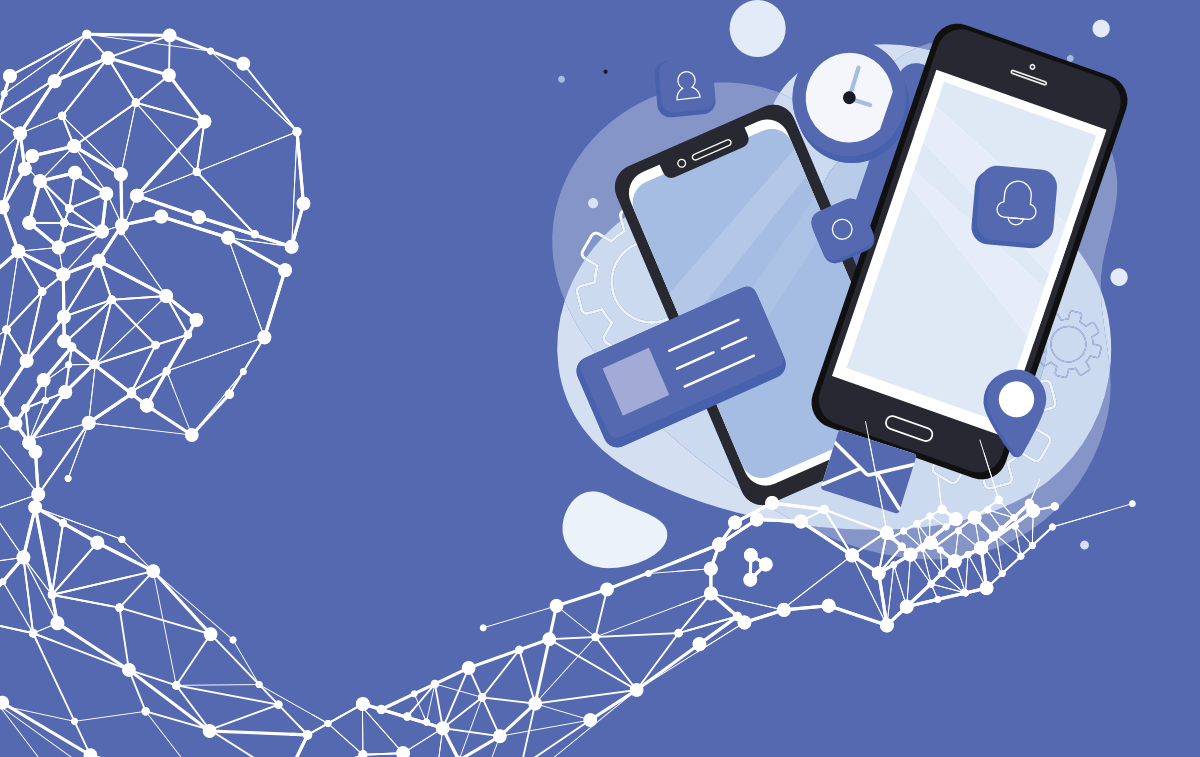Artificial Intelligence (AI) in mobile app development refers to the use of machine learning algorithms, natural language processing, and other intelligent technologies to enhance the functionality and user experience of mobile applications. AI enables mobile apps to perform tasks that were previously only possible with human intervention, such as recognizing speech, identifying objects, and predicting user behavior. By leveraging AI, mobile app developers can create more personalized and intuitive applications that can adapt to user behavior and preferences. AI also enables mobile apps to automate tasks, perform real-time data analysis, and provide predictive maintenance, among other applications. Overall, AI plays a crucial role in modern mobile app development, enabling developers to create more intelligent and efficient apps that enhance the user experience.
Artificial Intelligence In Mobile App Development
Artificial Intelligence (AI) has revolutionized how we interact with technology, and its impact on mobile app development is significant. Mobile apps have become essential to our lives, and AI has made them even more efficient and user-friendly. In this blog, we’ll discuss the top 10 advantages of AI in mobile app development.
AI’s benefits in developing mobile apps
Personalized User Experience
AI can be used to analyze user behavior and preferences, enabling mobile app developers to personalize the user experience. By collecting and analyzing user data, AI algorithms can provide personalized content and recommendations, making the app more engaging and user-friendly.
Enhanced Security
With the increasing threat of cyberattacks, security has become a crucial factor in mobile app development. AI can be used to enhance app security by detecting and preventing unauthorized access. AI algorithms can also be used to monitor and identify potential threats in real time, ensuring the app’s security is always up-to-date.
Predictive Analytics
AI can be used to analyze user behavior and make predictions about their future actions. By analyzing data such as user interactions, search history, and app usage patterns, AI algorithms can predict what the user is likely to do next. This information can be used to provide personalized content and recommendations, improving the user experience.
Intelligent Automation
AI can automate repetitive and time-consuming tasks, allowing mobile app developers to focus on more critical aspects of app development. AI algorithms can be used to automate tasks such as testing, debugging, and optimization, saving developers time and effort.
Natural Language Processing
AI can be used to enable natural language processing (NLP) in mobile apps. NLP allows users to interact with the app using voice commands and natural language, making the user experience more intuitive and efficient. NLP can also be used to analyze user feedback, providing valuable insights into user behavior and preferences.
Image and Object Recognition
AI algorithms can be used to enable image and object recognition in mobile apps. This technology can be used in various applications, from recognizing faces for security purposes to identifying products for online shopping. Image and object recognition can enhance the user experience and make the app more efficient.
Chatbots and Virtual Assistants
AI can be used to create chatbots and virtual assistants in mobile apps. Chatbots can be used to answer user queries and provide customer support, while virtual assistants can perform a variety of tasks, such as scheduling appointments and setting reminders. Chatbots and virtual assistants can save users time and enhance the user experience.
Real-Time Data Analysis
AI can analyze data in real-time, providing valuable insights into user behavior and app performance. Real-time data analysis can be used to optimize the app’s performance, identify potential issues, and provide personalized content and recommendations.
Smart Notifications
AI can be used to create intelligent notifications in mobile apps. Smart notifications can be customized to the user’s preferences and behavior, providing relevant information at the right time. This could improve user experience and boost participation.
Predictive Maintenance
AI can be used to enable predictive maintenance in mobile apps. Predictive maintenance uses AI algorithms to analyze data and predict when maintenance is needed. This can help prevent downtime and ensure the app is always running smoothly.
Conclusion
In conclusion, artificial intelligence is transforming the mobile app development industry, providing developers with the tools to create intelligent and personalized applications. From enhanced user experiences to streamlined workflows and cost savings, AI offers numerous advantages that can benefit both developers and users alike. As AI continues to evolve, we can expect even more exciting developments in mobile app development in the years to come.


